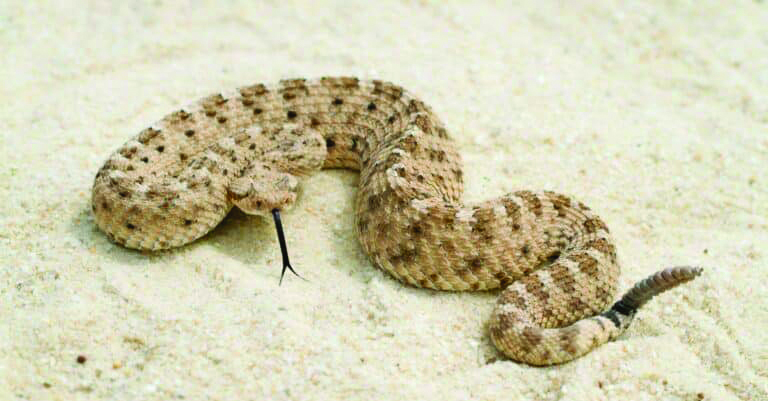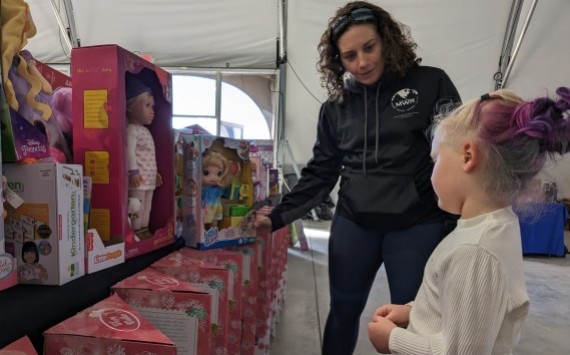There have recently been a lot of reports about sidewinder rattlesnakes, and a trained DPW biologist can safely remove and relocate snakes such.
Sidewinder rattlesnakes are venomous pit vipers, but they are shy and mostly nocturnal, resulting in relatively few bites to humans. They also do not appear to be aggressive.
The snakes feed almost exclusively on small rodents — mice and kangaroo rats, and lizards. At night, they roam relatively long distances, smelling the air and substrate for prey.
One adaptation helping sidewinders survive in their desert habitat is rough scales. These scales allow them to move in an S-motion across the hot sand without burning themselves. In fact, they can travel at a speed of up to 18 mph! A roadrunner can run up to 20 mph, if necessary.
Snakes have a life-saving physiological characteristic known as venom metering. Venom is physiologically costly to produce, so they do not waste it, unless provoked or killing prey. Even young snakes monitor how much venom they will inject. Rodents, lizards and small birds are on their menu — not humans.
There are proactive measures we can take to minimize adverse encounters with snakes:
- Be alert and be aware that NTC/Fort Irwin is at the end of the “world’s longest cul-de-sac” which ends in a desert wilderness.
- Be aware of temperature gradients. When it is hot (95 degrees or more), snakes will seek shade and shelter. This can be a building, a bush or a vehicle. Oftentimes, a snake that is resting during the daytime will move as the temperature drops.
- When sitting down, watch where you put your hands and feet.
- Snakes may wait until it is dark to forage for food.
- Snakes usually only attack in self-defense. So if you see a snake, watch from a safe distance.
On the one hand, snakes are the natural predators of disease-ridden rodents. On the other hand, snakes are also food for birds of prey — hawks, falcons, eagles and roadrunners.
In more than 30 years, only five people at Fort Irwin have been bitten by snakes. Four of these involved people trying to “grab” the snake and were all bitten on their hands.
We can all learn to live safely with snakes, and appreciate their important role in nature.
For more information or help relocating a snake, call 24-Hour Wildlife at 619-288-8883 or the Fort Irwin Directorate of Public Works at 760-380-5909.












